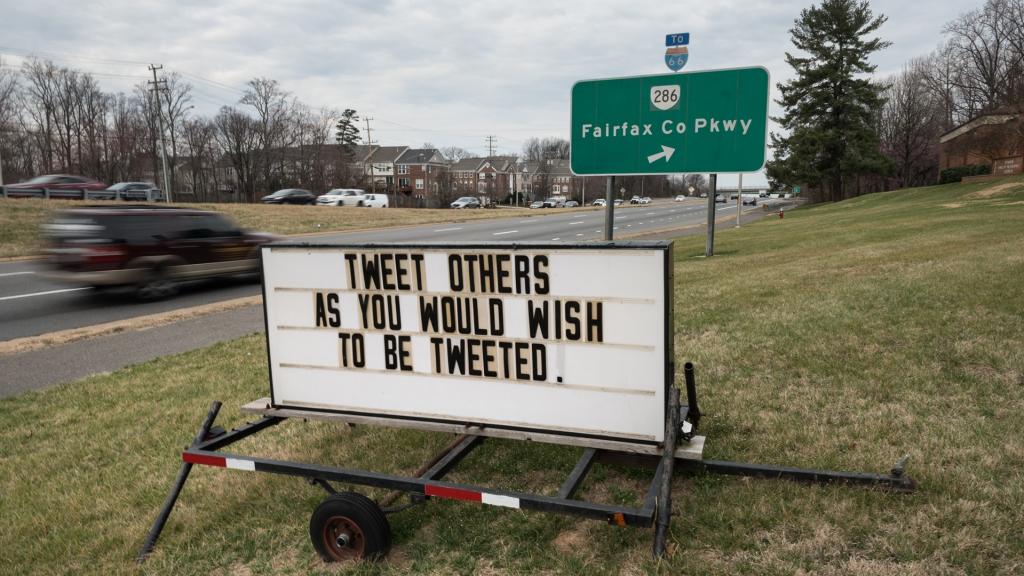
First Impressions
Trump’s tweeting thumbs set the agenda for the news cycle again this week. My first exposure was a headline that read “GO BACK! Trump’s Racist Tweet.”
I don’t generally read news articles. I’m leery of the clickbait that comes with them and the bias that envelopes them. So, instead, I listen to the CBS World News roundup podcsast. Since it strives to be concise, it tends to convey less bias and ads than most news sources.
Having seen the headline about Trump’s tweet, I was curious how my news podcast would frame the story. As usual, it highlighted a few key details. It echoed the racist nature of Trump’s tweet, named the nonwhite congresswomen he targeted, and pointed out that the women he told to “go back” were actually born in America. So in addition to trumpeting racism, the president showcased his ignorance of their origins.
Facebook posts rounded out my exposure to this story. For the most part, they touted Trump’s racism and implored readers to do something about it, whether in a voting booth, local march, or some sort of community forum.
My mind was made up. Trump remains delusional, and this Twitter tirade simply confirms it.
A Second Look
But then something happened that prompted me to write this blog. I stumbled across Trump’s actual tweet. I was surprised by what I read. Trump told certain unnamed congresswomen to “go back and help fix the totally broken and crime-infested places from which they came” and “then come back and show us how.”
To me, this sounds a bit different. It still wreaks of bigotry, but perhaps in a different way. My initial media impressions portrayed the president as saying, “If nonwhites don’t like it here, they can leave.” In reality, however, he didn’t implore them to leave on account of their ethnic origins. Rather, he asked them to go and do something about the places from which they came and then come back to tell us how to do it.
Again, this is still a horrible thing to say—not only because only one of the women he targeted hailed from a different country—but also because he portrayed other countries in the worst possible light. Yet having read the entire tweet I would say that his statements are not as much racist as they are nationalistic and xenophobic. He presumes that America is great and other countries are not. In so doing, he displays in exaggerated form the bias of most members of congress and a good number of Americans on the political right and left.
That should be enough to turn the stomachs of Christians whose messiah was born in pre-modern-democratic Bethlehem. But that is not my point. My point concerns how easy it is to make the story about what the story is not really about. My point is that carefully reading Trump’s actual statements paints a much more nuanced picture than simply feeding off of soundbites. Left-leaning media portrays Trump’s statement as racist and not nationalist because the former serves their agenda of discrediting them and the latter does not.
Christian Concern
If this were only happening with presidential tweets, I wouldn’t be all that concerned. Washington politics as usual. Bickering parties always interpret their rivals in the least charitable way. It’s part and parcel of the fallennes of the powers and principalities of this world—both on the left and the right. Christians have seen far worse. The powers beheaded John the Baptist, crucified Jesus, persecuted the early church, and continue to silence and kill Christians around the world.
What alarms me most is how the tendency to quickly spot offensive undertones in political banter has conditioned us to read the Bible poorly. Our eyes and ears are being trained to expose sexism and racism in all times and places, and the Bible is not immune.
This skews our reading of Scripture in ways we should acknowledge. The Old Testament, in particular, has fallen upon hard times. Even Bible loving evangelicals have given up trying to defend it. Apparently, it’s too much work. They tire of having to explain why this or that passage isn’t as racist or sexist as it seems to be. So it’s easier for them to say, “Well that was in the Old Testament, but we’re New Testament people.” Or “That was under the old covenant of Moses, but we subscribe to the new covenant of Jesus.”
Are we so far from Auschwitz that we don’t realize how racist those cop-outs are? Such statements themselves implicate in racism both ancient Israelites and modern day Jews for whom the Old Testament alone is Scripture.
Racism in Scripture
Israel’s conquest of Canaan has been particularly susceptible to soundbite Bible bashing. I cannot tell you how many times I’ve heard people portray this event as genocide or some sort of ethnic cleansing–the most extreme form of racism. Yet such a soundbite ignores just about every detail in the story.
For instance, it ignores the highly relevant detail that God asks Israel to drive multiple ethnic groups out of the land. Scripture clearly and repeatedly names these groups in all of their plurality: Hivites, Canaanites, Hittites, Amorites, Perizzites, Jebusites (Exod 23:8; 33:2). The only criterion for whom Israel should drive from the land is that they currently live there. The reasons for this are complex and would require their own post, but ethnicity is not one of them.
Sexism in Scripture
Consider also the so-called trial of an accused wife. The soundbite version of this legislation in Numbers 5 is horrifying. Israel is apparently so sexist that when a husband even suspects his wife of cheating on him, he is entitled to publicly humiliate her. He does this by forcing her to drink some sort of priestly potion that exposes her guilt if her uterus drops. That sounds awful. But, again, closer inspection tells a different story.
In the ancient Near East, men were typically given the benefit of the doubt in the courts. So if a husband tired of his wife for whatever reason, he could simply accuse her of infidelity and divorce her. He could then go about his life, remarry, and start afresh.
The woman had little recourse. She could only accept the divorce, move back in with her parents, and likely spend the rest of her life in disgrace. She would be considered “damaged goods” and would struggle to find a man willing to marry her. If her parents were not wealthy, she might experience abject poverty and turn to prostitution in order to avoid enslavement.
God’s holy nation could not tolerate such injustice. Their laws forbade both prostitution and enslavement (for the most part, cf. Lev 25). So they needed a way to protect accused women. This law served that purpose.
It’s important to note that dirty water over which a curse has been pronounced does not naturally cause a woman’s uterus to drop. It takes an act of God for dirty water to produce such a result. This meant that the accusing husband must count on God intervening in world history to legitimate his claim. The man would have no reason to think God would do this unless the woman was, in fact, guilty.
A false accusation would have disastrous consequences for the lying man. He must remain with his wife, and he must continue to live in his relatively small community in the company of bitter in-laws and disappointed neighbors. It would take a while for him to recover from the shame that he brought upon himself and his household.
The net effect of this law is that men would be less inclined to falsely accuse their wives. This was good news for women. The process would be terribly demeaning, there is no mistake about that. But it is precisely for this reason that a lying man would bear great shame and this law would function as a deterrent.
Why, you might ask, do we find no such law for a wife who suspects her husband of adultery? Because men were not vulnerable in the same way. Wives did not routinely throw their husbands out on the streets, so men did not need the same sort of protection. This only underscores that this law functioned to protect women, not discriminate against them.
The Main Point
To be clear, I have no desire to defend Donald Trump. To paraphrase a good friend of mine, no instrument has been invented that can measure my indifference toward American political partisanship. Rather, I hope to shine some light on how constant exposure to decontextualized media soundbites from the left and the right appears to be rubbing off on the church. We’ve become lackadaisical with Scripture. We’ve acquired a taste for tantalizing hyperbolic morsels of truth.
This lazy approach cannot help but spill over into our Bible reading. If we are not careful, it will slowly erode our confidence in Scripture. And an insecure church struggles to proclaim God’s living and active word to a world that desperately needs to hear it.













